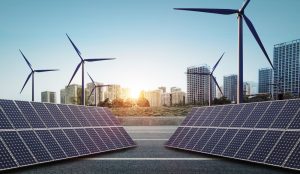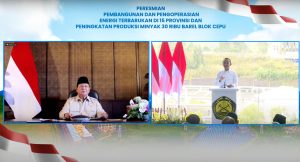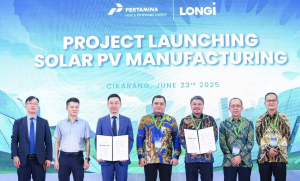Jakarta – The Indonesian Consumers Foundation (YLKI) emphasizes that the use of new and renewable energy (NRE), especially solar energy, is very important for energy independence and sustainable development in Indonesia.
YLKI Chairman Tulus Abadi said on Wednesday, August 7, that solar energy has the potential to reach 20,000 GWp. This enormous potential makes solar energy the main choice to strengthen energy access in all corners of the country.
According to him, consumers have a crucial role in encouraging sustainable consumption patterns. “The use of renewable energy is the responsibility of consumers in supporting sustainable consumption patterns,” said Tulus in his official statement.
Tulus also emphasized the importance of creating a climate of supportive policies and regulations, so that people can easily access and install solar energy. “We encourage the government and other stakeholders to strengthen regulations so that people can more easily utilize solar energy,” he added.
Meanwhile, IESR Sustainable Energy Access Program Manager Marlistya Citraningrum explained that solar energy is a democratic and inclusive energy source. She mentioned four important points in the development of solar energy in Indonesia: orientation to users and their impacts, identification of systems that fit the local context, sustainable assistance for communities, and professional management.
Vice President of Sales of PT PLN (Persero), Rahmi Handayani, added that public interest in rooftop solar power plants (PLTS) has increased significantly.
“From 2018 to 2024, the number of rooftop solar power plant customers increased from 609 to 9,324. The capacity also increased from 2 MWp to 197 MWp, an increase of 98 times,” Rahmi said.
According to Rahmi, the high public interest in rooftop solar power can be seen from the quota sold in July 2024, reaching 88 percent or 901 MWp. This reflects the great potential of solar energy utilization in various conditions.
YLKI hopes that solid cooperation between the government, civil society organizations, and related parties can continue to be strengthened to educate and assist the public in utilizing solar energy.
“Collaboration is the key to ensuring that renewable energy, especially solar energy, can be accessed by all levels of society,” Tulus concluded. (Hartatik)













